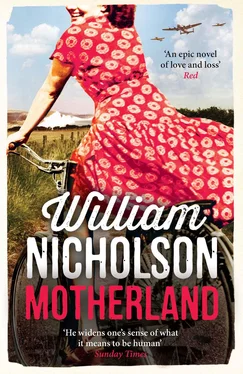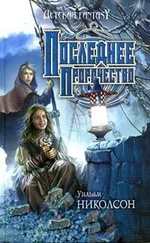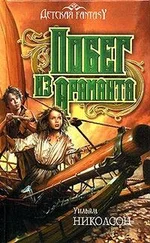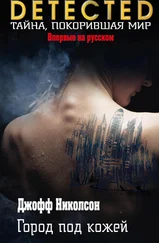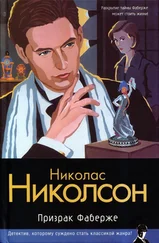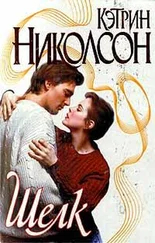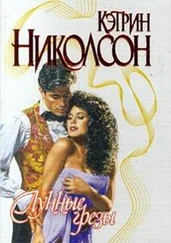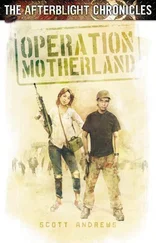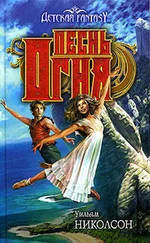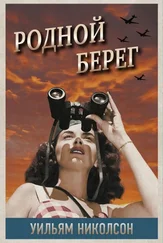‘Let’s not talk about it,’ he says. ‘Tell me what you want.
Tell me what I should do.’ ‘Nothing at all,’ he says.
‘Just be my beautiful wife.’
Pamela leans across her mother and says to him in her clear high voice, ‘Hello, Daddy.’
* * *
Louisa has scraped together a celebration dinner of some magnificence. There’s an actual roast chicken and George contributes a bottle of Meursault, one of the few not consumed by the Canadians.
‘We have to welcome home our hero,’ Louisa says.
Ed retires to the rooms where Kitty and Pamela live, a bedroom, dressing room and bathroom above the dining room. He soaks in a deep warm bath, and then dresses in clothes lent him by his host. There is nothing here that belongs to him.
‘I didn’t know what else to do,’ says Kitty.
‘This is perfect,’ says Ed. ‘I shall be a new man.’
A bed is made up for Pamela in the dressing room. Kitty is surprised she accepts her expulsion from her mother’s bedroom without protest. Ed comes and kisses her good night at her bedtime. He seems to expect nothing from her, which Pamela finds thrilling. After he’s given her a kiss he touches her cheek with one forefinger, as he did when they met for the first time. As he does so, his gaze lingers on her, and he’s almost smiling.
At dinner his homecoming is toasted with the mellow burgundy.
‘There’s some newspaperman wants to talk to you,’ Kitty says. ‘He wants the story of your VC.’
‘Well, he won’t get it,’ says Ed mildly.
‘But we’re all so proud of you!’ says Louisa.
‘I’m afraid it’s a lot of nonsense,’ says Ed. ‘Let’s leave it at that, shall we?’
They eat by candlelight, in the dining room. The effects of the military occupation are everywhere in the house, but in the warm glow of the candles it’s almost as if the war has never been. Ed, bathed and wearing a freshly laundered shirt that hangs loose on his spare frame, draws all their eyes. His face, hollowed out by his years in prison, has the austere beauty of a medieval saint. He seems to the others to be present only partly in their world. A part of him has gone on, to a place where they can’t follow him.
That night he lies in Kitty’s arms, but they don’t make love.
‘I need time,’ he says.
‘Of course you do, my darling. We have all the time in the world.’
In the night while Kitty is sleeping he gets out of their bed and lies down to sleep on the floor. In the morning, finding him there, Kitty asks him if he’d like a room of his own.
‘Just for a night or two,’ he says. ‘It’s been so long since I’ve been able to be alone.’
Kitty doesn’t look at him as she answers, and she forces her voice to remain light.
‘Of course,’ she says.
* * *
After that Ed spends his nights in a bedroom across the passage. By day he goes for long solitary walks over the Downs.
Kitty has made plans for his return, for them to have a house of their own. The idea comes from Louisa, that they should rent one of the farmhouses on the estate. Since Arthur Funnell’s death the land attached to River Farm has been worked by the tenant at the Home Farm, and the house is no longer occupied. The rent would be nominal. But for now she says nothing of this to Ed. It’s as if he hasn’t yet fully returned from the war.
When they’re alone together, she tries to get him to talk about his time in the camps.
‘What did they do to you over there, Ed?’
‘Nothing much,’ he says. ‘Some of the other fellows had it far worse than me.’
Little by little she builds a picture of his time in captivity. He tells her about the hunger, and the cold, but not as if he was much troubled by either. He seems to have suffered most from restrictions on his movement.
‘Do you mean being locked in a cell?’
‘No, we weren’t locked up. We were in blockhouses most of the time. But the handcuffs got me down rather.’
‘Handcuffs?’
He shows her, holding out his wrists a foot or so apart.
‘It’s not like I was chained to a wall. But you’d be surprised how many things you can’t do when you’re cuffed. Makes it hard to sleep at night, too.’
‘How long were you in handcuffs?’
‘A little over a year.’
‘A year!’
‘Four hundred and eleven days.’
He delivers the number with a wry smile, as if ashamed to admit that he kept count.
‘But handcuffs don’t kill you,’ he says.
One night Kitty is woken by a sudden cry. She knows it comes from Ed’s room. She goes to him and finds him standing in the middle of the room, eyes staring, still half asleep. Her appearance wakes him fully.
‘Sorry,’ he says. ‘God, I’m sorry.’
She sits him down on the bed and takes him in her arms. He huddles against her, trembling.
‘Just a bad dream,’ he says.
‘Darling.’ She kisses his damp cheek. ‘Darling. You’re safe home now.’
The more she learns of how much he’s been hurt, the more she loves him. That cry in the night binds him to her more tightly than any words of love.
She watches him when he can’t see her watching, wanting to be part of what’s happening to him. There are so many stories these days about men coming home from war, and how difficult it is for them to adjust. Always the advice is the same: give them time. Kitty is willing to give him all the time in the world, so long as she can be sure he still loves her. Often when his faraway gaze falls upon her she sees his face light up with happiness. And once, kissing her before retiring to his solitary bed, he says, ‘If it wasn’t for you, I’d have let them kill me over there.’
One great consolation is that he loves Pamela, and she loves him. Often she’ll sit on his lap for an hour at a time, clinging to him tightly, her face pressed to his chest. They never talk. They just sit like that, his arms round the child’s little body, in one or other of the empty echoing rooms of the great house, and let the world go by.
14
In early November of 1945 the painter William Coldstream, finally released from the army, accepts an invitation to teach at the Camberwell College of Art. His friends Victor Pasmore, Claude Rogers and Lawrence Gowing are already on the staff; and altogether it’s as if the pre-war Euston Road school has been reborn and moved south of the river.
Coldstream takes his first evening class wearing his dark blue demob suit, looking more like a bank clerk than an artist. His class of twenty students covers a range of ages, from the very young, fresh from the Downs School or a foundation course in a provincial town, to ex-service men and women in their late twenties. Among them is Larry Cornford. The class takes place in one of the Life Rooms in the shabby Victorian building on the Peckham Road, where the roar of passing lorries outside competes with the shriek of tram wheels. A life model waits, fully dressed, sitting on an upright chair to one side.
The teacher begins by reading from Ruskin’s Elements of Drawing .
‘I believe that the excellence of an artist depends wholly upon refinement of perception, and that it is this which a master or a school can teach.’
Larry watches his teacher intently as he speaks. He’s seen some of his paintings and he admires them. The man himself is a surprise: his voice unassertive, his face almost expressionless as he speaks. He tells the class that they must learn to judge the distance of objects from the eye. He calls the life model to stand in front of the class. He faces her, one arm outreached, holding a pencil vertically in his hand.
‘The eye notes the length of the head, crown to chin, on the pencil. The hand transfers the same distance to the pad, making marks accordingly. Now looking again, note the distance from eyebrows to mouth. Make the marks. You see how, little by little, you build up a precise set of relationships between the elements of the face.’
Читать дальше
